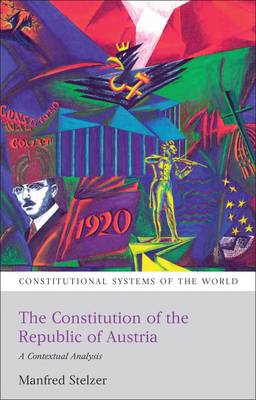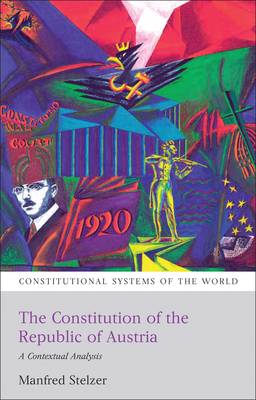
Bedankt voor het vertrouwen het afgelopen jaar! Om jou te bedanken bieden we GRATIS verzending (in België) aan op alles gedurende de hele maand januari.
- Afhalen na 1 uur in een winkel met voorraad
- In januari gratis thuislevering in België
- Ruim aanbod met 7 miljoen producten
Bedankt voor het vertrouwen het afgelopen jaar! Om jou te bedanken bieden we GRATIS verzending (in België) aan op alles gedurende de hele maand januari.
- Afhalen na 1 uur in een winkel met voorraad
- In januari gratis thuislevering in België
- Ruim aanbod met 7 miljoen producten
Zoeken
The Constitution of the Republic of Austria
A Contextual Analysis
Manfred (University of Vienna, Austria) Stelzer
€ 40,95
+ 81 punten
Omschrijving
This book shows the Austrian Constitution as a product of Austria's modern history and explores its parliamentary system.
Specificaties
Betrokkenen
- Auteur(s):
- Uitgeverij:
Inhoud
- Aantal bladzijden:
- 294
- Reeks:
Eigenschappen
- Productcode (EAN):
- 9781841138527
- Verschijningsdatum:
- 28/04/2011
- Uitvoering:
- Paperback
- Afmetingen:
- 216 mm x 141 mm
- Gewicht:
- 382 g

Alleen bij Standaard Boekhandel
+ 81 punten op je klantenkaart van Standaard Boekhandel
Beoordelingen
We publiceren alleen reviews die voldoen aan de voorwaarden voor reviews. Bekijk onze voorwaarden voor reviews.









